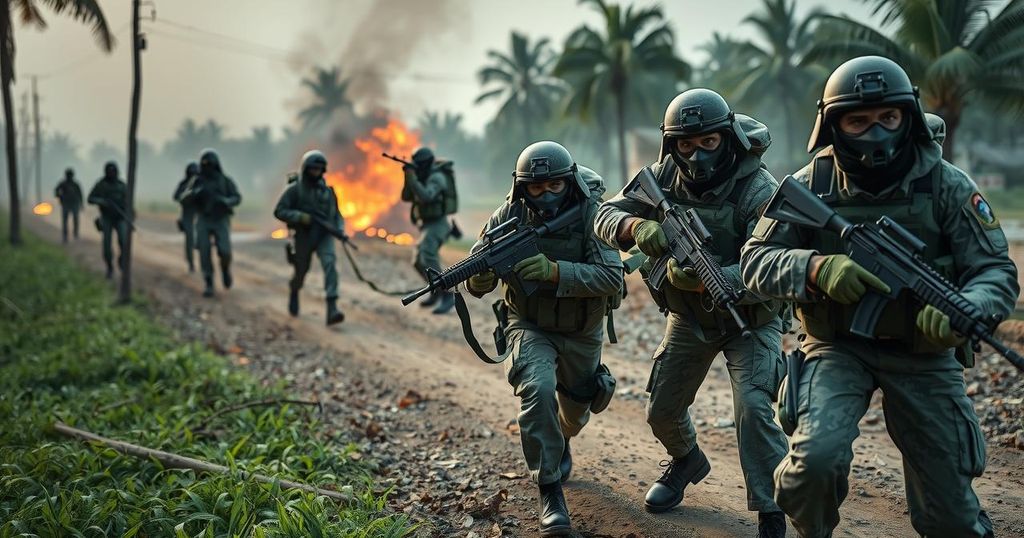Fighting resumed in eastern Congo, violating a ceasefire agreement involving the M23 rebel group and the Congolese army. Despite ongoing negotiations about the withdrawal of Rwandan forces, violence has persisted. The M23 group continues to assert its involvement in ceasefire agreements while tensions rise ahead of upcoming talks between the Congolese and Rwandan presidents.
Fighting has resumed in eastern Congo as of December 4, following a breach of the ceasefire, as reported by both the M23 rebel group and the Congolese army. The renewed hostilities raise questions regarding the commitment of the M23 group to halt its offensive following the withdrawal of Rwandan troops. This resurgence of violence marks a troubling continuation of the conflict that has persisted in the region since the M23 group reignited its insurgency in 2022.
The M23 group, predominantly composed of Tutsi fighters, has been accused by the Congolese government and the United Nations of receiving support, including troops and armaments, from Rwanda. Nevertheless, Rwanda has denied these allegations. According to U.N. experts, there are reportedly between 3,000 and 4,000 Rwandan government forces in eastern Congo who are acting in conjunction with the M23 insurgents, exacerbating tensions in the region.
Following discussions on November 25, the Congolese and Rwandan foreign ministers outlined a framework for the withdrawal of Rwandan forces. The M23 group confirmed the resumption of conflicts after the Congolese army announced a similar development. Furthermore, a meeting between the presidents of Congo and Rwanda is scheduled for December 15, which will be the first official engagement since the inception of the 2023 conflict.
On November 30, the M23 rebels stated their commitment to the ceasefire negotiated in March 2023, despite their lack of involvement in the ongoing dialogues between Rwanda and Congo. The deteriorating situation has also elicited concern from the United States, which expressed alarm over the repeated violations of the ceasefire by the M23 rebels at the beginning of November.
The eastern region of the Democratic Republic of Congo has been plagued by conflict due to the activities of the M23 rebel group, which resumed its insurgency in 2022. This prolonged conflict has drawn concerns from international observers, particularly regarding Rwanda’s alleged support for the M23 rebels, which has been a source of tension between the two nations. The international community is closely monitoring the situation, with the United Nations actively involved in reporting and assessing the realities on the ground. Over the years, multiple ceasefires have been attempted, but continued violations threaten to undermine efforts toward securing lasting peace.
In summary, the resumption of fighting in eastern Congo by the M23 group and the Congolese army highlights the fragile state of peace in the region. Despite previous agreements for ceasefire and discussions for the withdrawal of foreign troops, escalating hostilities raise concerns about the future of peace negotiations. The international community’s vigilance remains essential as key regional leaders prepare to engage in discussions aimed at resolving the ongoing conflict.
Original Source: www.usnews.com






